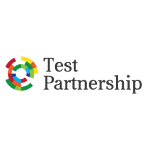Pre-employment assessments have emerged as powerful tools that not only complement these traditional methods but also offer a predictive edge when it comes to determining job success. These assessments leverage a combination of cognitive abilities, personality traits, and skills evaluations to provide employers with insights into a candidate's potential performance. This article explores how the best pre-employment assessments employ techniques to accurately predict job success.
The Science Behind Predictive Assessments
At the core of effective pre-employment assessments lies a foundation of psychological science. These assessments are designed to tap into a wide array of human attributes, including cognitive abilities, emotional intelligence, behavioural tendencies, and even cultural fit. The amalgamation of these factors helps create a comprehensive profile of a candidate's potential for success in a particular role.
Cognitive Abilities as Predictors
Cognitive assessments are pivotal components of pre-employment assessments and play a crucial role in predicting job success. These tests evaluate a candidate's aptitude for problem-solving, critical thinking, and logical reasoning. Several types of cognitive tests are particularly indicative of job performance:
- Numerical Reasoning Tests: These tests assess a candidate's ability to work with numerical data, interpret charts and graphs, and solve quantitative problems. For roles that involve data analysis or financial decision-making, a strong performance in numerical reasoning tests often predicts success.
- Verbal Reasoning Tests: Verbal reasoning assessments evaluate a candidate's comprehension skills, vocabulary, and ability to draw logical conclusions from written information. Candidates who excel in verbal reasoning tend to be effective communicators and can interpret complex instructions accurately.
- Inductive Reasoning Tests: Inductive reasoning tests assess a candidate's ability to identify patterns, make predictions, and draw inferences based on limited information. These tests are particularly relevant for roles that require creative problem-solving and innovation.
Personality Traits and Cultural Fit
Another key aspect of pre-employment assessments is the evaluation of personality traits. Different roles necessitate distinct personality traits – a sales role may require high extraversion and empathy, while a project management role could benefit from traits like conscientiousness and attention to detail. By assessing personality traits, pre-employment personality tests offer insights into how well a candidate's natural tendencies align with the demands of the job and the company's culture.
Situational Judgment Tests for Behavioural Insights
Situational Judgment Tests (SJTs) are gaining prominence as valuable tools for predicting job success. SJTs present candidates with realistic work scenarios and ask them to select the most appropriate course of action from a set of options. These assessments provide insights into a candidate's decision-making, problem-solving, and interpersonal skills in context. SJTs are especially useful for evaluating candidates' ability to handle complex, real-world situations that mirror the challenges of the job.
Conclusion
In a rapidly evolving job landscape, where roles and skill requirements are constantly changing, the need for accurate predictors of job success has never been greater. Pre-employment assessments, when designed with a scientific foundation, offer invaluable insights into a candidate's potential. By assessing cognitive abilities, personality traits, and practical skills, these assessments provide employers with a holistic view of a candidate's suitability for a role. With a focus on cognitive reasoning tests, personality traits, and the inclusion of tools like SJTs, pre-employment assessments are becoming increasingly adept at forecasting success. As businesses strive to make informed hiring decisions, the predictive power of these assessments proves to be a valuable asset in building high-performing teams and driving organizational growth.







